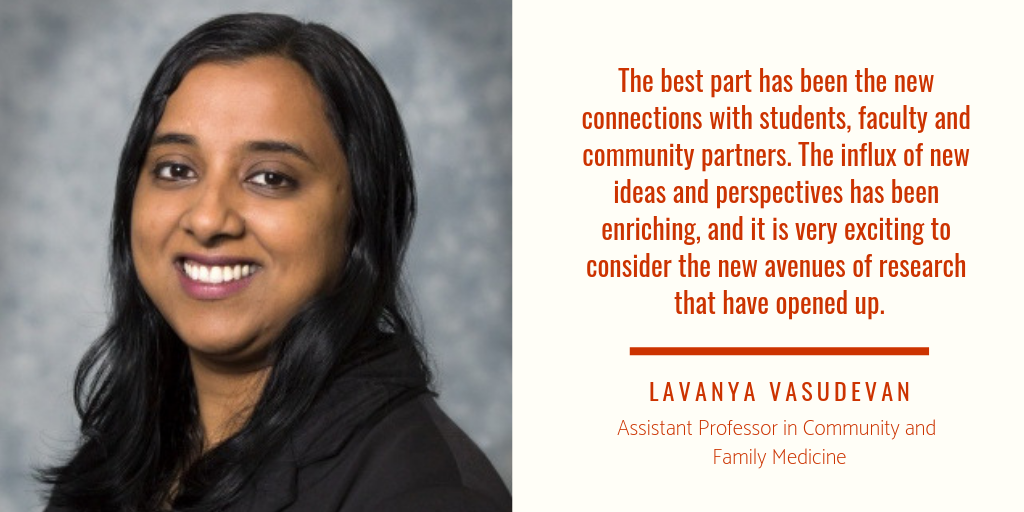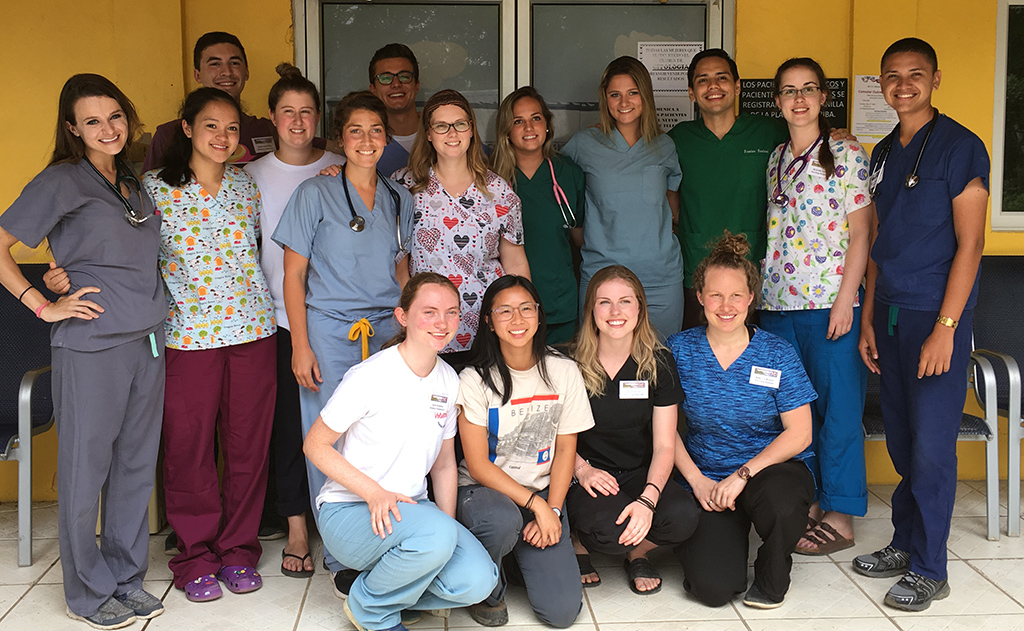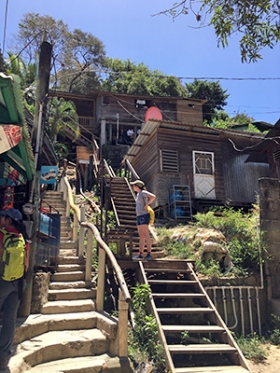Honored for Her Mentorship, Lavanya Vasudevan Shares Insights on Intercultural Research
March 27, 2019

Lavanya Vasudevan led a Bass Connections project team to analyze the uptake of childhood vaccination services in Kumasi, Ghana, and Roatán, Honduras, followed by a team that created a mHealth system for better routine immunization data in Roatán. Collaborating with Clinica Esperanza, the team built, tested and evaluated mVax, an app designed to streamline the process of recording immunization data and improve record collection, access and storage. The app is currently in use in the clinic as part of its routine vaccination workflow.
Kate Watkins, a team member on the Roatán project, recently made a gift in Vasudevan’s honor through the Celebrating Mentors Senior Giving Challenge.
As a mentor and Bass Connections team leader, Lavanya has gone above and beyond to help improve my academic writing and data analysis skills. I look to her wisdom and work ethic as a model of responsible scholarship and wish to thank her for her dedication to developing the research capacity of myself and many other students! – Kate Watkins ’19
This year, Vasudevan is leading a new team to study vaccine misinformation in Durham. Below are excerpts from her remarks at a Bass Connections information session for faculty.

Practice and Pedagogy
Our 2015-16 team had related research and pedagogical goals. The research goal was to conduct a comprehensive analysis of vaccination practices in Honduras and Ghana in order to identify, compare and contrast barriers to vaccine uptake. Due to our focus on two diverse international settings, we identified the pedagogical goal of building skills in intercultural competence as a critical component of our project.
Building a Team
We worked with a four-student team with backgrounds in medicine, biomedical sciences, biology, global health, chemistry and math. Our team benefited from establishing a set of protocols early in the process. We talked as a group about communication expectations and took advantage of the team-building resources on the Bass Connections website.
We created a team charter, set up a list of team norms and created a collaborative syllabus – all things that we were really proud of. Our students worked in sub-teams, one focused on Ghana and one on Honduras, each with one senior-level and one less-experienced student. This allowed the students to clearly define and assign goals at the sub-team level, while being able to each contribute substantially to the overall project.
Engagement and Reflection

At both of our sites, students completed a wide range of research activities including surveys, observations, focus groups and interviews that included global stakeholders and healthcare providers doing work in the area. We also created a template for intercultural reflection, with the students sharing what they did well and what they would want others engaging in the Bass Connections process and international fieldwork to know.
The relationships and reputation that the students built during their fieldwork abroad really helped us think about subsequent iterations of the project. In Ghana, our students worked with a local partner for language and research support. In Honduras, we partnered with Clínica Esperanza who we’re continuing to work with to implement our vaccination app.
Personally for me, the best part about the experience has been the new connections – with students, faculty and community partners, with whom I would otherwise not have had the opportunity to interact. The influx of new ideas and perspectives has been enriching, and it is very exciting to consider the new avenues of research that have opened up as a result.
Learn More
- Check out a research update from Kate Watkins, Linh Bui and Rob Steilberg.
- See other faculty perspectives and learn how faculty can get involved in Bass Connections.
- Come to the Bass Connections Showcase on April 17.
